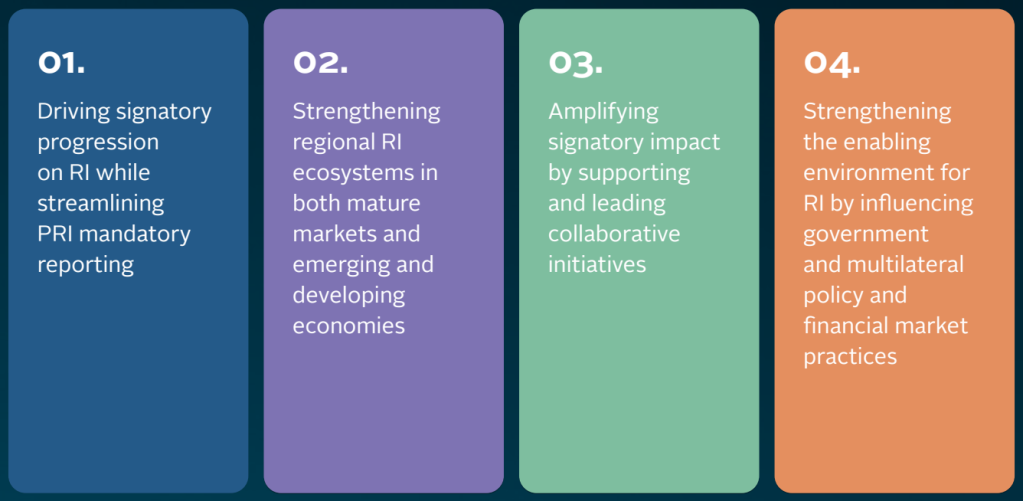The United Nations Principles for Responsible Investment (UN PRI) has released its strategy plan for the next three years, aimed at promoting the development of global responsible investment and improving the investment environment for signatories.
The PRI, a UN-supported network of investors, works to promote sustainable investment through the incorporation of environmental, social and governance (ESG) factors into its investment decision making and ownership practices.
Since launching almost 20 years ago, the Six Principles of Responsible Investment now have more than 5,000 signatories, representing US$128.4 trillion assets under management, or more than half the world’s institutional assets under management.
There has been widespread incorporation of material ESG issues into corporate strategies, risk management and reporting, and sustainability reporting is now mandated or imminent in many major economies. But success has also brought new challenges, with pushback against responsible investment emerging in some markets.
PRI Strategic Plan 2024-2027
In creating the new strategy plan for 2024-27, PRI had to rethink how to best support signatories and deliver value. The network spent 18 months listening, reflecting and in global consultation, which culminated in the new strategy that lays out how the global network will deliver for its signatories.
Backed by the belief that “an economically efficient, sustainable global financial system is a necessity for long-term value creation,” the new strategy has two overarching objectives:
“To maximise the value we deliver to signatories in a rapidly evolving responsible investment environment, and to support signatories to play a meaningful role in achieving a sustainable global financial system.”
The new strategy plan demonstrates how it will support signatories’ responsible investment ambitions – whatever size or type of organisation they are, wherever they are in the world, and whatever their individual objectives. The new strategy plan describes how the PRI will deliver for signatories across four key strategic areas:

- Driving signal progress on responsible investing while streamlining PRI mandatory reporting: The PRI will implement financial measures that recognise reporting frameworks across different jurisdictions and allow signatories to simplify information disclosure and promote responsible investment practices. In the future, at least one-third of the signatories will incorporate ESG factors into sustainable investment pathways.
- Strengthening regional ecosystems in both mature markets and emerging and developing economies: The PRI will establish responsible investment ecosystems globally and collaborate with local sustainable finance associations to expand the scope of responsible investment in emerging markets. The asset management scale of future signatories will increase by an additional US$10 trillion to US$20 trillion.
- Amplifying signal impact by supporting and leading collaborative initiatives: The PRI will promote connections and biodiversity areas. Signatories will cooperate through existing responsible investment initiatives and future newly established responsible investment initiatives.
- Strengthening the enabling environment for responsible investment by influencing government and multilateral policy and financial market practices through influencing policies and market practices: The UNPRI will work closely with signatories to promote the development of responsible investment policies and regulations, and support signatories’ participation in multilateral policy-making. In the future, over 50% of signatories will support the development of sustainable financial policies and establish contacts with regulatory agencies in at least 15 key markets.
PRI Reporting in 2025
In line with this new strategy plan, PRI Reporting in 2025 is a first step towards streamlining mandatory reporting and transitioning towards Progression Pathways — a new voluntary framework for progressing responsible investment that PRI is co-designing with signatories.
The diverse range of signatories have varying needs, practices and market requirements, but the aim of PRI Reporting in 2025 is to create a stable baseline that can support the move towards streamlined mandatory Reporting and Progression Pathways, while responding to the changing reporting landscape that signatories operate in.
Read more on PRI Reporting in 2025, and find the new UN PRI Strategy Plan here.

